Introduction
For EOD teams, the use of PIR (Passive Infrared) sensors in explosive devices can be a major concern as they are sensitive to X-Ray, and then can trigger a device while performing the inspection.
The classic X-Ray method used does not allow to manage kV then it becomes very difficult to be undetected by PIR. With the technology evolving, Constant Potential X-Ray generators have appeared and allow to adjust kV and mA while being able to set the duration of a shot. When having the parameters of the generator set to low kV and mA, we can remain undetected by PIR sensors.
To prove this theory, we have realized a study to determine the operability of CP (Constant Potential) Battery operated generators below the sensor sensitivity while keeping a sufficient image quality.
Sample of PIR Sensors
For this study, a non-exhaustive sample selection of PIR sensors has been used:
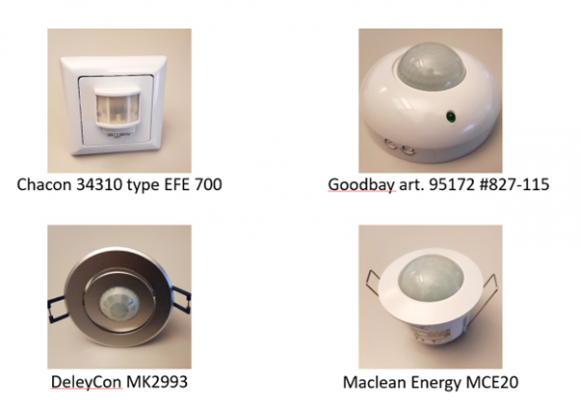
The 4 PIR sensors appeared to have very similar results so we will focus on the Chacon to demonstrate the findings.
Type of generator used for the study
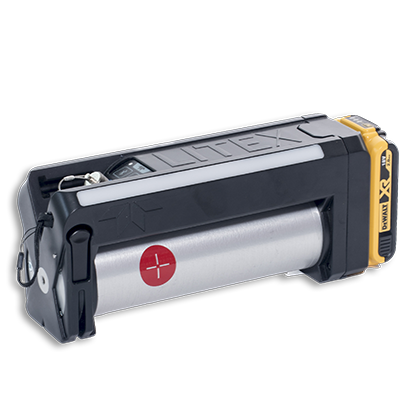
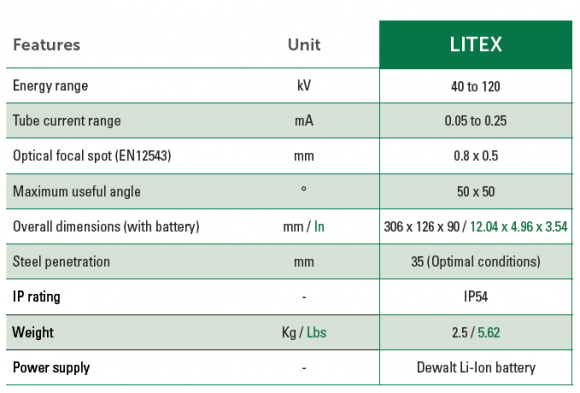
Main characteristics

- Adjustable kV, mA and exposure time
- Compatibility with X-Ray Scanners and Amorphous Silicon digital detectors
Type of detector used for the study
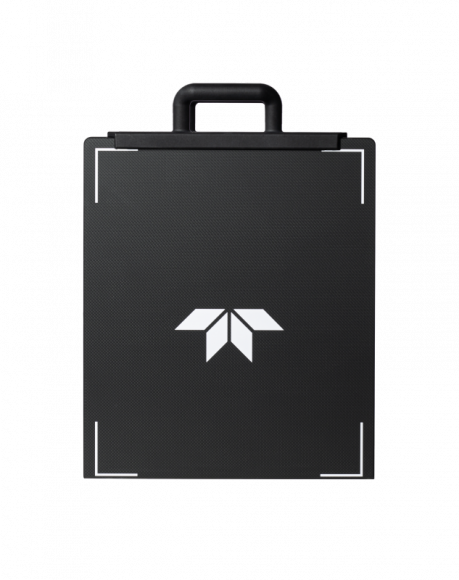
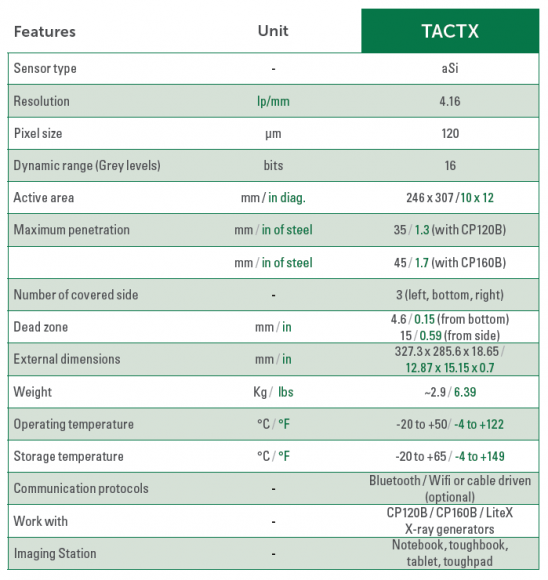
Sensitivity tests
Target: identifying triggering limit versus operating conditions based on kV and mA, distance and duration.
a. Effect on duration
Test conditions:
- PIR Sensor: Chacon
- 120kV, 0.25mA (Full power)

Conclusion:
While shooting at full power of the LiteX generator, the PIR sensor triggers immediately when x-rayed, the duration has no effect even at 1 second.
b. Effect of kV – mA adjustment
Test conditions:
- PIR Sensor: Chacon
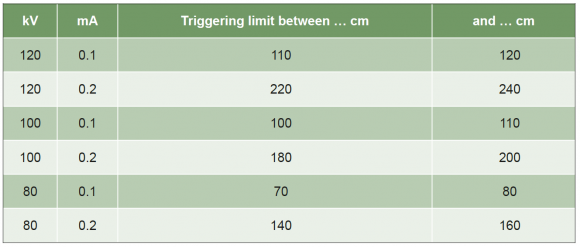
Conclusion:
The kV and mA adjustment capabilities of the LiteX CP generator make it possible to reduce the distance.
Image quality
Now the question is, can we get a good quality image while not triggering the PIR sensor?
a. Image quality using TactX with LiteX
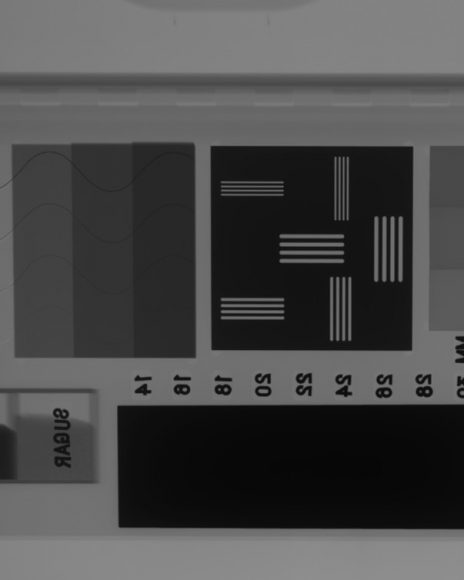
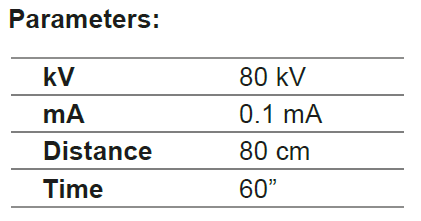
b. Corrected image quality using TactX with LiteX
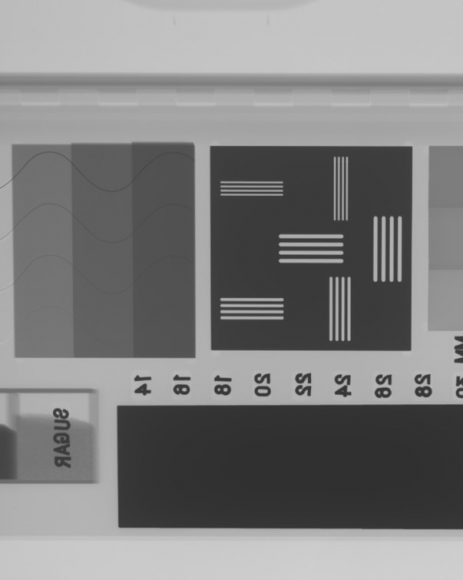

c. Corrected image quality using TactX with LiteX – SNR Value
SNR Value: 190
d. Processed image quality using TactX with LiteX
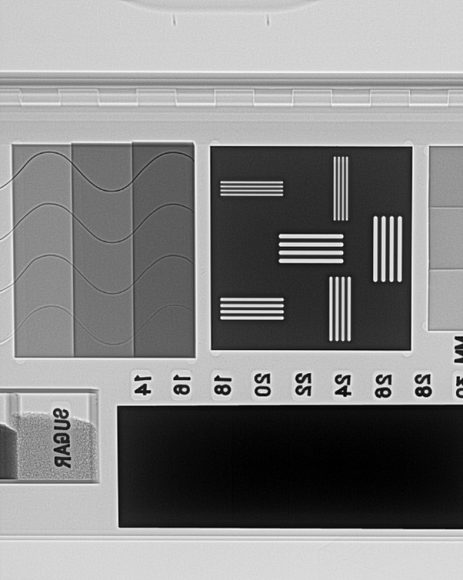

Conclusion
Constant potential generators can operate below PIR triggering limit while having a good average flux and an excellent image quality because:
- Signal is continuous
- Focal spot is smaller
- kV and mA are adjustable
- Time is adjustable
So, when PIR systems are used, the best way to not trigger them is to decrease kV and mA but increase exposure time. This will offer a great image quality while remaining undetectable.
[This article will be published in the Counter-IED Report, Spring/Summer 2023.]

